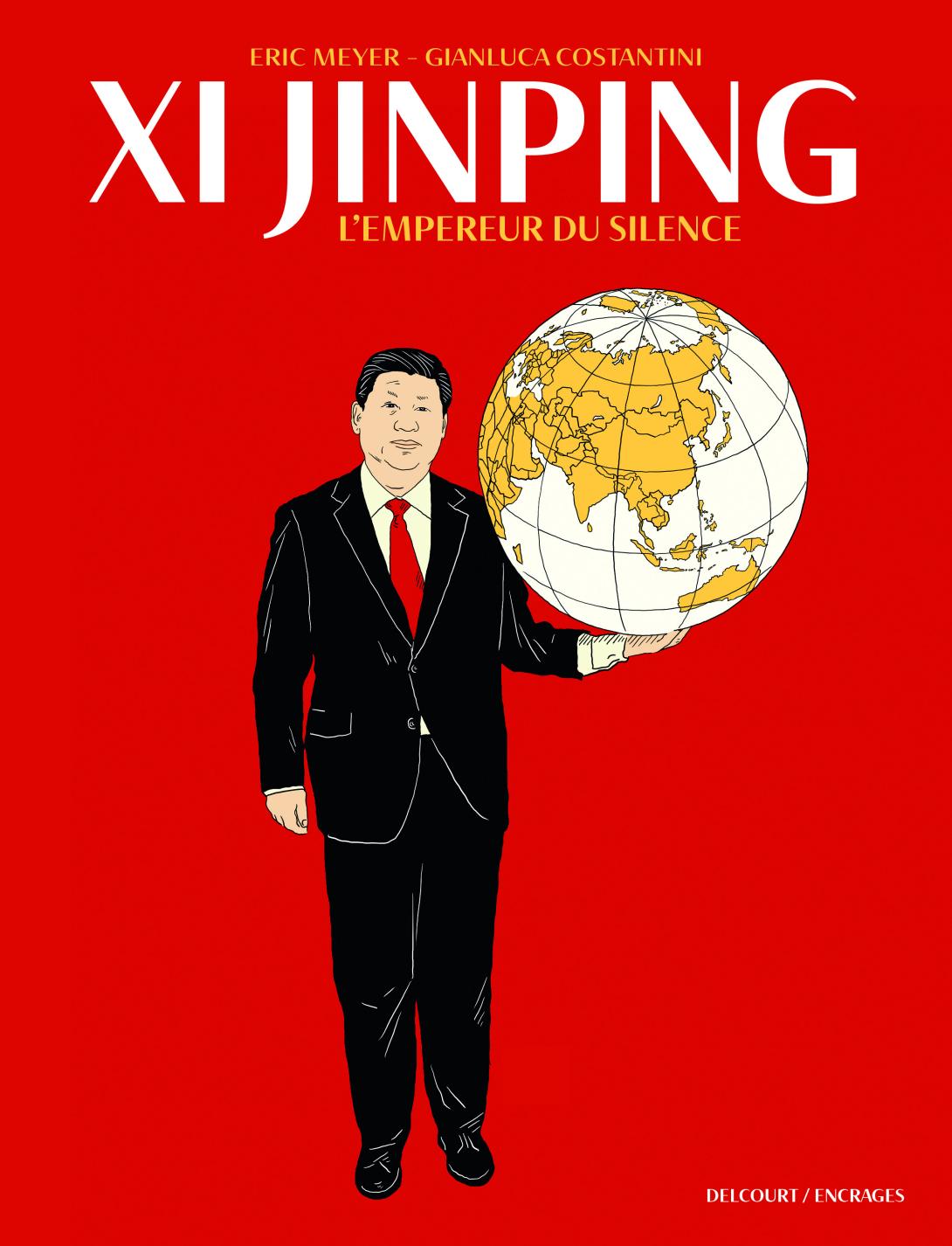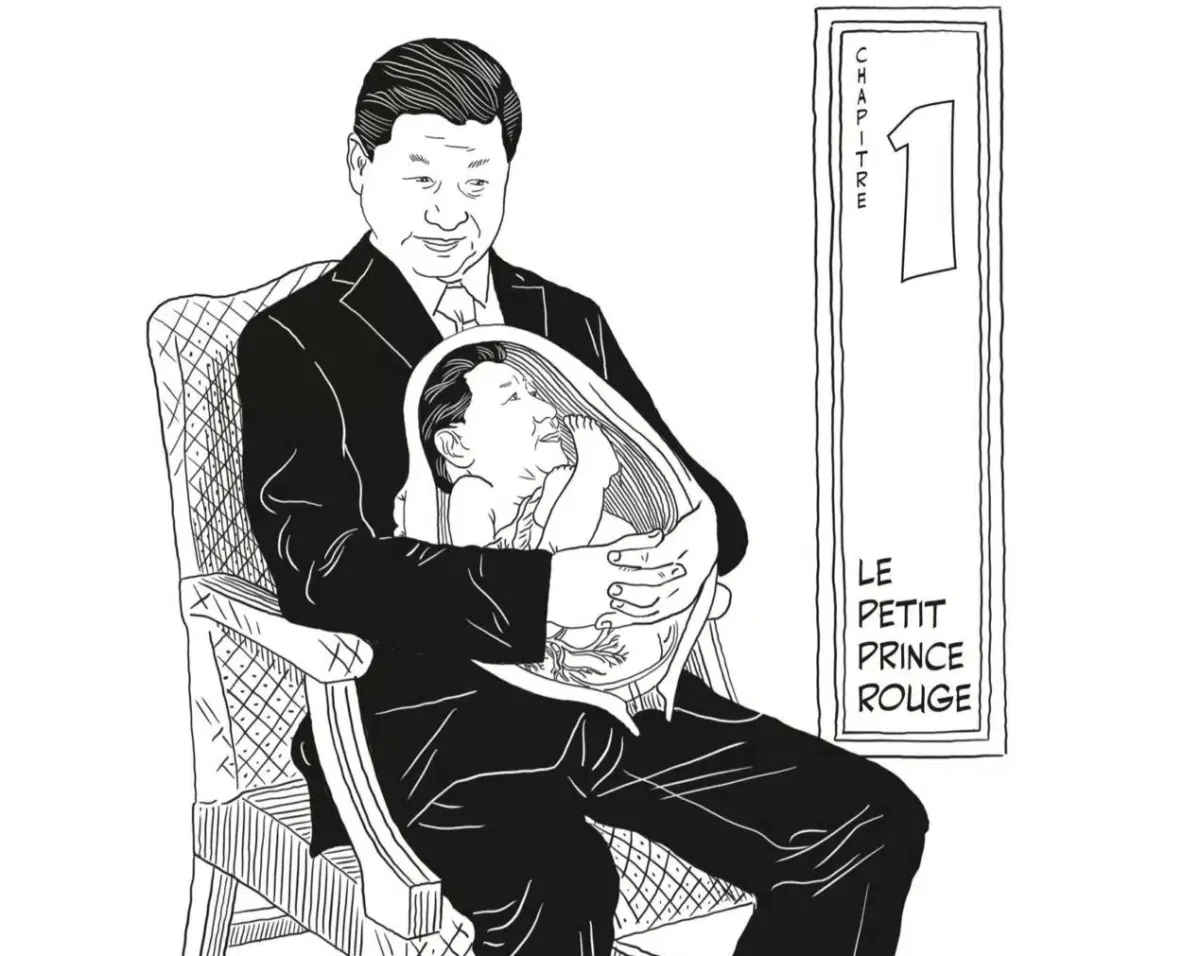A dictator is only human...

 Delcourt
DelcourtEric Meyer & Gianluca Costantini | L'Empereur du Silence | Delcourt | 232 pages | 27,95 EUR
The Emperor of Silence. There is a scene in this graphic novel that I already know from another book. Desmond Shum described it in Red Roulette, published by Simon & Schuster in 2021. In 2008, the wife of Zhang Zemin, former General Secretary of the Chinese Communist Party (CCP) and President of the People's Republic of China, meets with Xi. "Auntie" Zhang is deeply involved in the corrupt business practices of the Chinese elite. Together with her confidante and business partner, Desmond Shum's wife, she wants to establish whether business can continue as before with Xi, the rising star of the CCP. The attempt fails. Xi Jinping says virtually nothing the whole evening. He sits there, listens and remains silent. When he gains full power in China, Shum's wife disappears overnight and is never seen again.
It was when his father, one of the great figures of the communist revolution, fell from grace during the Cultural Revolution, that Xi Jinping learned to remain silent He had to spend many years of hard labour in the countryside. But in the end, his family connections helped him make a modest new start. Because he stands firm behind the party in every situation. Because he can demonstrate his talents, he rises through the ranks. Because he is not greedy for prosperity, he keeps his slate clean. Because he wants to climb the ladder - whatever the cost - he advances. The higher he climbs, the greater the silence around him. It is a silence born of fear. Xi Jinping is driven by a desire for ultimate control. His nickname among the people is Chairman of Everything. If you follow the graphic novel, this need for control stems from years of powerlessness, completely at the mercy of others who represent power. Xi Jinping certainly never wants to experience anything like this again in his life, something only possible at the very highest level of government. For life. It is not only in this respect that he resembles Vladimir Putin. A graphic novel about Putin was published by Delcourt in 2022.
Despite being forced to drop out of school, despite the setbacks of the Cultural Revolution and its often deadly years of chaos, there is another common thread running through Xi Jinping's life. The early red elite were not averse to nepotism; if you hire my son, I'll hire your daughter. Family values are upheld in China and are much stronger than anything the CCP has to offer. Mao's generation is being renewed by its own children. China is ruled by a red aristocracy by birth - the country can afford an Ancien Régime.
Only where things get tight, where the places in the sun can be counted on one hand, do fights erupt. Bo Xilai is a red prince who, like Xi Jinping, wants to get to the top. In 2011, he ordered a military commando to raid Xi Jinping's residence, as only one of the two can become head of state. Xi Jinping was prepared and the attack was repelled. Months later, the son of an important supporter of Bo Xilai died in his Ferrari. The car was tampered with. The father was Ling Jihua, the president's right-hand man, who was due to leave office. The Ferrari is a symbol of corruption. Ling Jihua's rise to the highest circle of power was prevented and he was shunted off to some lesser post. In 2021, he and Bo Xilai were accused of corruption by Xi Jinping, the new general secretary of the CCP, and disappeared permanently into prison.
With his rise, Xi Jinping escaped the shame of degradation during the Cultural Revolution, but also made himself vulnerable again. Not least through his constant anti-corruption campaigns, which frequently enabled him to kill two birds with one stone: save the CCP from internal disintegration and eliminate his political opponents one by one. In 2022, when a position of power for life was at stake, the Committee of Advisors, made up of the old leaders, voted in favour of deposing Xi and thus retaining a leadership of China limited to ten years. This was the system put in place by Deng Xiaoping after Mao's death and that has helped China achieve remarkable stability, rapid economic growth and great power status. Xi Jinping disagreed with this vote. He brought a number of soldiers armed with machine guns before the committee and demanded a re-vote. This time, the result was unanimously in his favour.
This cleared the way for Xi Jinping to lead China for the rest of his life. Now all he fears is assassination. Something else he shares with Vladimir Putin.
Eric Meyer is one of France's best-known sinologists and he tells the story of Xi Jinping's life concisely, scene by scene, year by year. He emphasises the authenticity of all the events and quotes. This is a human life in a harsh dictatorship. Eric Meyer does not dramatize it, he simply reports it. Nor does he judge, but remains a neutral, impartial narrator. So the reader is challenged. There are two possibilities. On the one hand, the graphic novel can be seen as a textbook for those who are kept awake at night by ambitions of power. Dictatorships are said to be on the rise. On the other hand, the book shows that man is just that - no more, no less. Gods and demigods no longer belong in the world of governance. And if one person wants and has to be responsible for everything alone, it can't go well. Eric Meyer takes stock on the final page by giving Xi Jinping the floor:
"Alone. They call me Pig's Head and Xitler. I don't care as long as I win. Around me are only opportunists. Even my family loathes me. Where is the knife meant for me hidden? I will sell my skin at a price. As long as I live."
The illustrator's work subtly echoes the style of Maoist propaganda posters. This gives the impression that it is a biography of Xi Jinping commissioned by the Chinese Communist Party. This use of revolutionary imagery is very effective and gives this passionate graphic novel a surprisingly realistic dimension.
Olivier Neuray contributed to this article.




